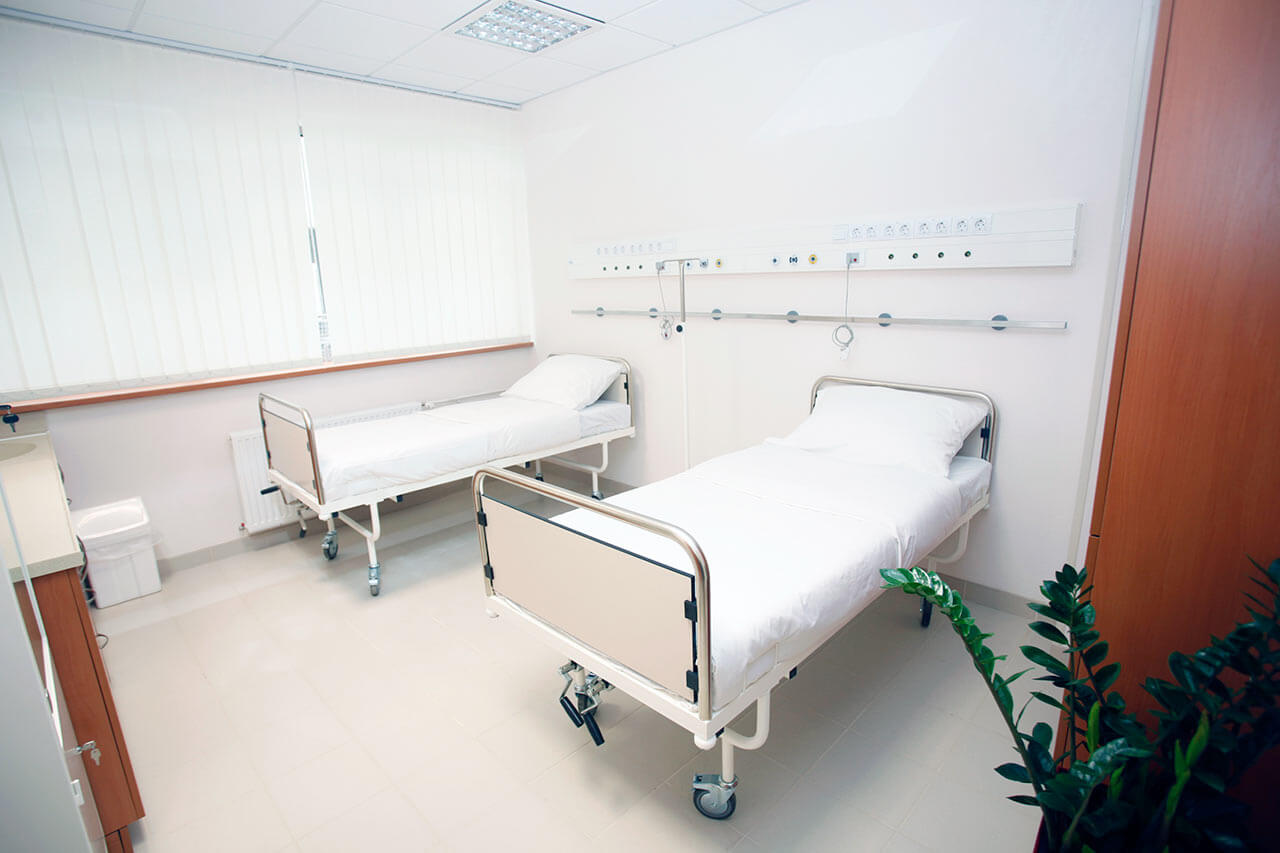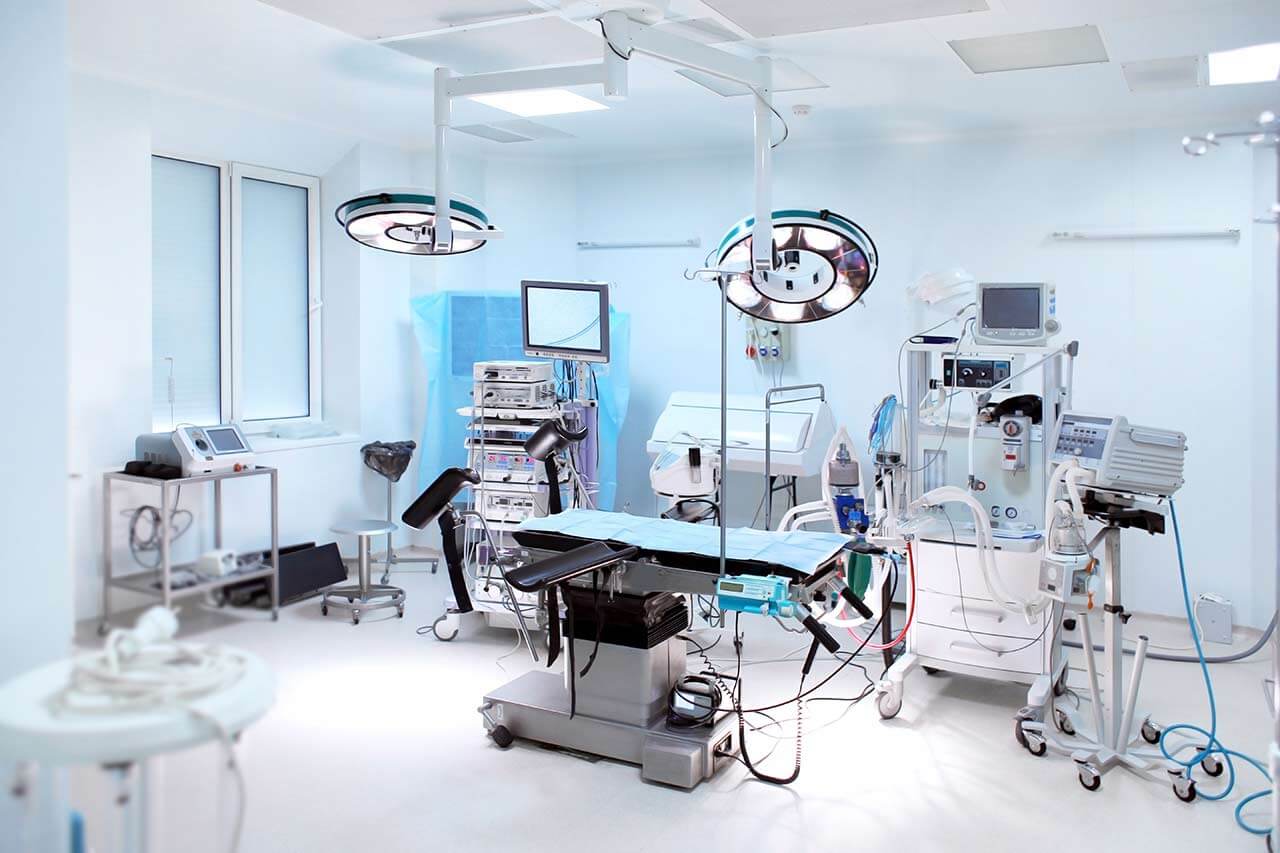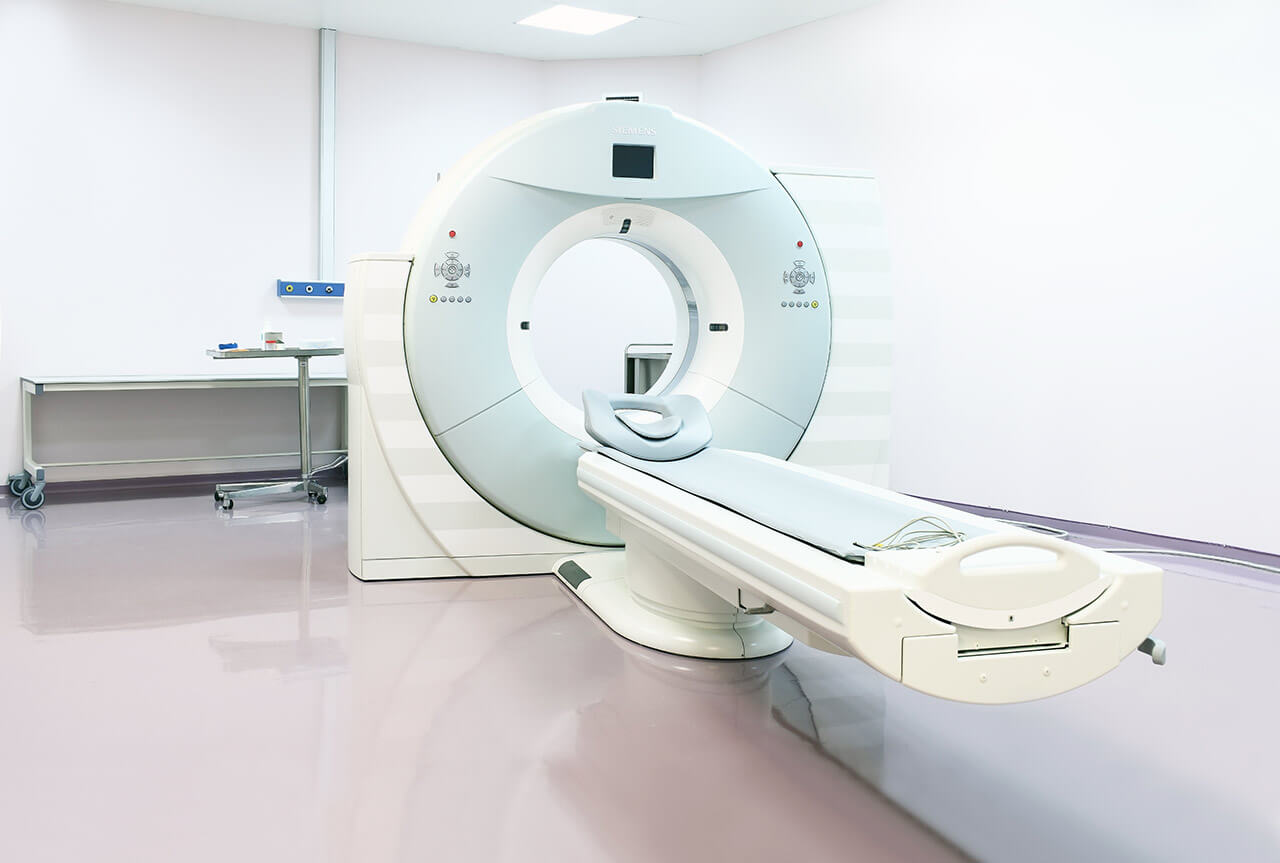
The program includes:
- Initial presentation in the clinic
- clinical history taking
- physical examination
- laboratory tests:
- complete blood count
- general urine analysis
- liver metabolism indicators (ALT, AST, gGT,
bilirubin detected (urine and blood), cholesterin) - hepatitis serology
- tumor markers (CEA, CA19-9, AFP)
- inflammation markers (CRP, ESR)
- blood coagulation analysis (aPTT, PT, INR)
- ultrasound of the abdomen
- liver fibroscan
- CT/MRI of the abdomen (if clinically indicated, additional cost is 550/800€)
- differential diagnostics with other liver diseases
- nursing services
- services of all leading experts
- explanation of individual treatment plan
Required documents
- Medical records
- Abdominal ultrasound (if available)
- Abdominal MRI/CT scan (if available)
Service
You may also book:
 BookingHealth Price from:
BookingHealth Price from:
About the department
The Department of Gastroenterology and Hepatology at the Asklepios Hospital Barmbek Hamburg offers the full range of diagnostic and therapeutic services in areas of its specialization. Patients with gastrointestinal disorders such as those of the stomach, esophagus, small intestine, large intestine, and pancreas are treated here. The department's doctors also admit patients with liver, gallbladder, and bile duct diseases. The department's specialists have a particular clinical interest in the treatment of benign and malignant tumors of the digestive system, chronic inflammatory bowel disease, stomach polyps, bowel polyps, pancreatitis, gastroesophageal reflux disease, gallstone disease, and cirrhosis. The department operates a modern Endoscopy Unit where many diagnostic and therapeutic procedures are performed. The department's gastroenterologists quite often manage to perform endoscopic interventions. This treatment is minimally traumatic but its effectiveness is in no way inferior to open surgery. Many endoscopic procedures are performed on an outpatient basis without a mandatory hospital stay. The department is an integral part of the Asklepios Cancer Center Hamburg. Gastroenterologists also cooperate closely with abdominal surgeons, so patients receive comprehensive medical care. The department is headed by Prof. Dr. med. Thomas von Hahn.
The department's team of doctors excels at performing endoscopic treatment of stomach, bowel, duodenal, and esophageal malignancies in the early stages. When cancer is detected at an early stage, the patient has a high chance of recovery. In addition, in such cases, the specialists often manage to use only drug therapy and endoscopic methods instead of performing traumatic surgery. To treat early-stage cancer of the digestive system, the department's doctors perform endoscopic mucosal resection and endoscopic submucosal dissection. The essence of the first method is the following: the doctor guides an endoscope to the pathological area, after which he captures the neoplasm with an electrosurgical loop and removes it. When performing endoscopic submucosal dissection, the doctor removes the affected area of the stomach or intestinal mucosa with the capture of the submucosa. If the diagnostic results confirm the presence of an oncological process, the decision on the optimal treatment option (endoscopic procedure or surgical treatment) is made jointly by gastroenterologists and abdominal surgeons. This approach provides patients with the most effective but, at the same time, sparing and safest treatment.
The department regularly admits patients with chronic inflammatory bowel disease, such as Crohn's disease and ulcerative colitis. Both pathologies affect patients of young age (15-35 years) and, to date, remain incurable. The therapy is therefore aimed at alleviating symptoms and providing the patient with a high quality of life. Diagnosing chronic inflammatory bowel disease may be quite a complex task, so if pathology is suspected, the department's doctors carry out thorough diagnostics, including a clinical examination, blood and stool laboratory tests, colonoscopy, gastroscopy, magnetic resonance imaging, and ultrasound scans. As for the treatment, a therapeutic approach depends on the severity of symptoms, the extent of the inflammatory process, and the affected area of the bowel. As a rule, during the period of exacerbation, patients receive drug therapy with anti-inflammatory drugs and immunosuppressants. In some cases, inflammatory bowel disease causes complications such as internal bleeding. In such cases, endoscopic procedures are performed. The last-line treatment for Crohn's disease and nonspecific ulcerative colitis is surgery. The specialists resort to this therapeutic measure only in cases where the pathology cannot be controlled using conservative treatments.
An integral part of the department's clinical practice is the treatment of liver, gallbladder, and bile duct diseases. The department's doctors have vast experience in the treatment of viral hepatitis A, B, C, D, and E, autoimmune hepatitis, hemochromatosis, Wilson's disease, cirrhosis, and malignant liver tumors. The department has all modern diagnostic techniques for comprehensive liver examination, including ultrasound, CT, MRI, elastography (the department uses the very latest method of acoustic radiation force impulse imaging), and liver biopsy. If the patient is diagnosed with one of the types of hepatitis, it is important for doctors to carry out the most effective treatment because this group of diseases provokes the development of cirrhosis and liver cancer. When hepatitis is confirmed, an individually developed drug therapy regimen is prescribed, which often includes recommendations to adjust the diet and quit drinking alcoholic beverages.
The department's key clinical focuses include:
- Gastroenterology
- Diagnostics and treatment of stomach and bowel polyps
- Diagnostics and treatment of benign stomach, bowel, and esophageal tumors
- Diagnostics and treatment of early-stage stomach, bowel, and esophageal malignant tumors
- Diagnostics and treatment of chronic inflammatory bowel disease: Crohn's disease and ulcerative colitis
- Diagnostics and treatment of gastroesophageal reflux disease
- Hepatology
- Diagnostics and treatment of viral hepatitis A, B, C, D, and E
- Diagnostics and treatment of autoimmune hepatitis
- Diagnostics and treatment of hemochromatosis
- Diagnostics and treatment of Wilson's disease
- Diagnostics and treatment of cirrhosis
- Diagnostics and treatment of liver cancer
- Diagnostics and treatment of primary sclerosing cholangitis
- Diagnostics and treatment of primary biliary cholangitis
- Other medical services
The department offers the following types of endoscopic diagnostics and treatment:
- Diagnostic procedures
- Gastroscopy
- Colonoscopy
- Enteroscopy
- Endoscopic retrograde cholangiopancreatography
- Endosonography
- Therapeutic procedures
- Gastroscopy
- Colonoscopy
- Endoscopic retrograde cholangiopancreatography
- Endoscopic mucosal resection
- Endoscopic submucosal dissection
- Argon plasma coagulation
- Percutaneous transhepatic cholangiography
- Endoscopic polypectomy
- Endoscopic stent implantation
- Other endoscopic procedures
Curriculum vitae
Higher Education
- 1995 - 1999 Medical studies, Albert Ludwig University of Freiburg.
- 1999 - 2000 Medical studies, Queen's University Belfast.
- 2000 - 2002 Medical studies and doctoral degree, Free University of Berlin.
Professional Career
- December 2002 - May 2004 Internship, Charite University Hospital Berlin.
- July 2004 - April 2007 Postdoctoral Fellow, Rockefeller University, New York, USA.
- June 2007 - December 2008 Consultant, McKinsey & Company, Dusseldorf, Germany.
- January 2009 - January 2019 Senior Physician, Hannover Medical School.
- Since February 2019 Head Physician, Department of Gastroenterology and Hepatology, Asklepios Hospital Barmbek Hamburg.
Photo of the doctor: (c) Asklepios Klinik Barmbek
About hospital
The Asklepios Hospital Barmbek Hamburg is an academic hospital of the University of Hamburg. The hospital was opened in 2005, and today it is one of the best and most modern medical centers in Europe. The priority areas of specialization of the medical facility are emergency medical care and comprehensive treatment of cancer, urologic diseases, gastrointestinal diseases, and pulmonary diseases, as well as abdominal surgery and thoracic surgery. The hospital provides patients with top-class medical services that meet international standards.
The hospital has 620 beds. More than 36,000 inpatients and about 74,000 outpatients are treated here every year. The patients' health is in the safe hands of a highly professional team of over 1,600 doctors and nursing staff.
The hospital offers high-quality diagnostic and therapeutic services and strictly follows current clinical protocols. The hospital boasts modern infrastructure and state-of-the-art medical equipment. The hospital is one of the few in Europe where patients are successfully operated on using the da Vinci surgical system. The hospital also houses well-equipped endoscopy rooms, cardiac catheterization laboratories, laser surgery rooms, and operating rooms for arthroscopic interventions. All these technical resources contribute to effective and, at the same time, minimally traumatic treatment.
It is worth noting that the hospital has vast experience in serving international patients. According to the Medical Travel Quality Alliance (MTQUA), the Asklepios Hospital Barmbek Hamburg ranks among the top three medical centers worldwide for medical tourism.
The medical center also holds the international DIN EN ISO 9001:2015 quality certificate, attesting to the excellent medical services provided. For its outstanding achievements in oncology and surgery, the hospital has been awarded certificates from the German Cancer Society (DKG) and the German Society for General and Visceral Surgery (DGAV).
Photo: (с) depositphotos
Accommodation in hospital
Patients rooms
The patients of the Asklepios Hospital Barmbek Hamburg live in comfortable single and double rooms. Each patient room has an ensuite bathroom with a shower and a toilet. The patient room furnishings include an automatically adjustable bed, a bedside table, a table and chairs for visitors, a TV, a radio, and a telephone. Wi-Fi access is also available in the patient rooms.
Patients can also be accommodated in enhanced-comfort rooms, which additionally include a rest area with upholstered furniture and a working area with a desk and a reading lamp. The bathroom in the enhanced-comfort rooms includes necessary toiletries, changeable towels, bathrobes, slippers, and a hairdryer. The enhanced-comfort rooms correspond to the standards of a high-class hotel.
Meals and Menus
The hospital offers tasty and balanced meals. Patients receive several menus to choose from and can see the menu in advance using a special mobile application. The hospital takes patients' food preferences into account and offers a wide range of dietary and vegetarian dishes. Breakfast, lunch, and dinner are served in the patient's room.
There is a cozy cafeteria on the first floor of the hospital where one can enjoy a cup of aromatic coffee or delicious tea with a dessert. The cafeteria offers a wide selection of snacks and salads.
There is a small store on the territory of the hospital where one can buy fresh fruits, yogurts, sweets, and magazines.
Further details
Standard rooms include:
Religion
There is a prayer room on the first floor of the hospital where patients can find solitude for prayer.
The hospital has an evangelical pastor who is happy to talk with patients and support them in the process of their treatment.
Representatives of other religions are available upon request.
Accompanying person
Your accompanying person may stay with you in your patient room or at the hotel of your choice during the inpatient program.
Hotel
You may stay at the hotel of your choice during the outpatient program. Our managers will support you for selecting the best option.





